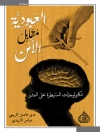Nothing is more important to a new, fragile or developing nation than developing the capacity of its government to support national well-being. Every society is complex; every government is complex. Yet, well-intentioned international development aid, born in an era of infrastructure projects, continues to apply simplistic technical solutions to these wickedly complex development problems. It’s an outside-in approach that rarely succeeds, even by the development industry’s own admission. But out there, amongst the billions of dollars of failed interventions, there are bright spots of success places where capacity is harnessed, not just for today, but for tomorrow, too. What is working so well? Drawing on research, practical experience, and stories of success, Jim Armstrong explores these emerging approaches.
Tabella dei contenuti
Foreword; Karl Moore 1. One Size Fits All 2. Wicked Problems 3. Positivism and Constructivism 4. The Central Case Study 5. Non-linear Process 6. Co-diagnosing 7. Co-learning 8. Evaluation As Co-learning 9. Co-designing 10. Co-acting 11. Trinidad and Tobago Example Conclusion: The Way Ahead
Circa l’autore
Jim Armstrong is President of The Governance Network™, Canada, and has been involved with major change projects with national leaders around the globe. He has a Ph D in Applied Management form the University of Birmingham, UK, a Masters from the University of Guelph, Canada, and a Masters from the University of Oxford, UK.












